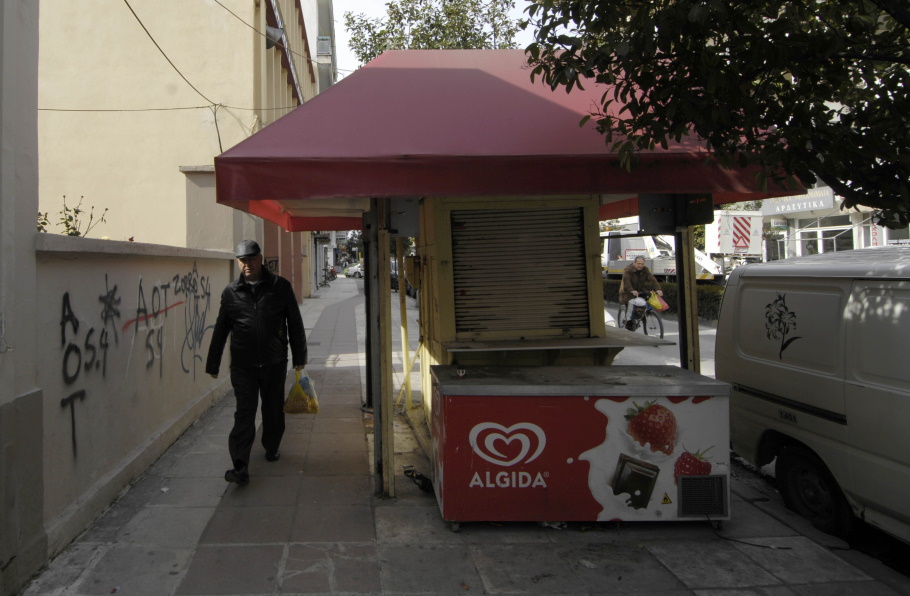
1) They are buying Greece like crazy
The last two weeks of January meet several conditions to remain in the country's economic history. There are at least three reasons why this happens.
The first relates to the success of the ten-year bonds issued by Greece.
The second is the success of the public registration and entry of Athens Airport into the stock market.
Third, with PPC management forecasting that its operating profits will reach €3 billion by 2030.
Less than the United States and the United Kingdom
Last week, Greece headed to the markets with ten-year bonds and borrowed 4 billion euros at an interest rate of about 3.37%. This interest rate is lower than the interest rate used by countries such as Italy and the United Kingdom. And the United States of America.
In addition, Greece was asking for 4 billion euros, and offers from international investors reached 35 billion euros.
The 10-year bond also means that lenders will collect the money they lent to Greece in 2034, two years after the end of the existing moratorium on the country's debt.
This means that international markets believe that Greece, in 2033, will smoothly emerge from the protectionist “incubator”, where two-thirds of its excessive debt is located. As is known, two-thirds of Greek debt is “locked” in the coffers of European partners at generous interest rates of around 1.5%. The interest of anti-memoirs of the past decade has finally proven rewarding.
airport
If further proof was needed that Greece is back with a bang, it was provided by the country's largest corporate public offering (IPO) in more than two decades, Bloomberg reported a few days ago.
The circular included the disposal of 30% of the shares of “El Venizelos Airport” on the Greek Stock Exchange.
Total demand, expressed by international and Greek investors at the offering price, exceeded $8 billion, representing an oversubscription of approximately 12 times the entire combined offer.
The Bloomberg report notes that “the Greek economy outperformed most European countries last year, making the financial crisis that the country witnessed more than 10 years ago a distant memory.”
We can read such comments about Greece since the 1950s and 1960s when the economy was growing faster than Japan's.
The return of the “prodigal”
PPC until 2019 was on the verge of bankruptcy with trade unionists appointed by the leaders of the previous government already performing their last rites.
No one would have thought that this company, whose liabilities exceed 5 billion euros, would be able to avoid bankruptcy and liquidation so as not to leave the country without electricity.
The most likely scenario that emerged before 2019 was that the “crown jewels,” such as hydropower and natural gas plants, would be sold to some individual rather than the lentil table, with the banks, the state and taxpayers bearing the loss. Several billion euros.
This was the end of the leftist statisticians' plan.
But things turned out to be quite the opposite.
A few days ago, the management of the now private PPC company, after the state participation fell below 50%, announced that after the acquisition in Romania, it also plans to acquire in Bulgaria, creating an energy corridor centered in Greece. This significantly increases the geopolitical influence and importance of Greece in the region.
In detail, the administration stated in a presentation to international investors in London that between 2024 and 2026 the PEP aims to:
– Increased operating profitability with Group EBITDA expected to reach 2.3 billion in 2026 (a 35% increase from the 1.7 billion previously targeted for 2026). For 2030, the group aims to achieve EBITDA of around $3 billion.
– Increased installed capacity by 18% on an annual basis despite the parallel withdrawal of all lignite units until 2026.
– Increasing the installed capacity from renewable energy sources, which will constitute more than two-thirds of the total installed capacity in 2026 from 43% today, and investments in energy storage plants. DEH Group aims to have 8.9 GW of installed capacity from renewable energy sources in 2026.
Total investments of $9 billion in the three years, particularly in the field of renewable energy sources, grid modernization and new activities, increased by 130% compared to the three years 2021-2023, which will be financed mainly from the Group’s operating cash flows and borrowing, 80% of which has been secured. actually.
– Expanding into Southeastern Europe and exploiting the value creation potential between countries, through the energy corridor being created.
– Entering new relevant markets, such as fiber optic networks, and continuing to develop new activities that have already begun, such as electricity.
Perhaps PPC's return to the limelight should serve as a case study in how a bankrupt country like Greece can recover.
Everyone believed that the powerful party-dominated unions that were involved in running the company would drag it with them to the “grave.” On the contrary, suitably motivated employees supported the privatization and reorganization of the group.
This may be a model for further denationalization of the state and especially the economy.
The above three news items, among many others, are examples of how something has changed in the country.
Foreigners are buying Greece like “crazy” or they have money to spare or they see something.
As skeptical and cautious as anyone should be (especially a journalist), they should realize this.
2) Professions (for the minority) in the NTUA and the unacceptable decision (refusal) of professors to conduct exams online
Mr. Stopa,
A disgruntled citizen of this country writes to you, who, although she transferred (with a lot of effort and reading) to the (supposedly) best university in the country NTUA (as she thought), is forced to stop studying and taking exams because some minorities have decided (in the boards we fear) We go, the reason is known) We now also have our professors refusing to take exams online (while they did it during the pandemic), and making excuses.
Maybe I should move to a regional university in Greece with much lower acceptance points and less effort so that I can continue the courses normally (because they don't have jobs in the region) or simply go abroad…
welcome
Sophia S
3) Equipment pool
Mr. Stopa, good evening.
Sometimes I read your articles. It's all documented and basically irrelevant whether they agree with me or not.
Of course, when it comes to weapons programs and access to elite weapons systems, there is no doubt that we are buying from the top shelf. Of course, at an unbearable cost to health, education and social status.
Our country has begun to mobilize armaments to strengthen its defenses. Everything we buy will not be used by Greece for aggressive purposes. We are practically buying time. Anything we buy today should guarantee us at most five years of peace of mind. Then either the competition will be as awe-struck as we are, or current technology will become obsolete.
In conclusion, we live in an ultimate dead end that is indefinitely restricted. Can anything else be done? Probably not. However, we can maintain the illusion of superiority and success.
Blessed are the poor in spirit.
Good evening
millimeter

“Avid problem solver. Extreme social media junkie. Beer buff. Coffee guru. Internet geek. Travel ninja.”





More Stories
They extinguish the “little gold mines” of the glorious past
It’s the hen’s fault – why brown eggs are more expensive than white eggs
The opening of Nammos in Cannes and 7 other culinary creative offerings of the season will be discussed